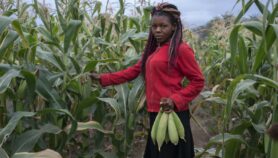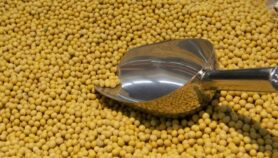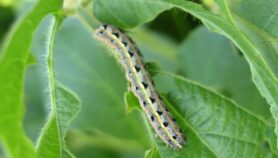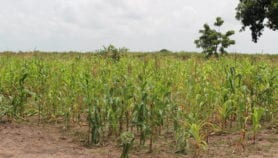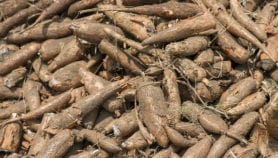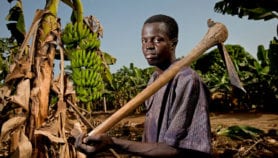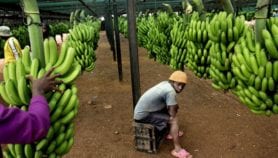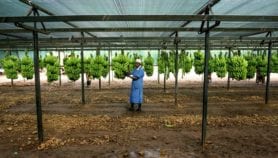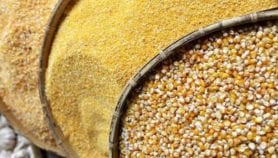10/03/23
Africa steps up genetic engineering for climate-resilient crops
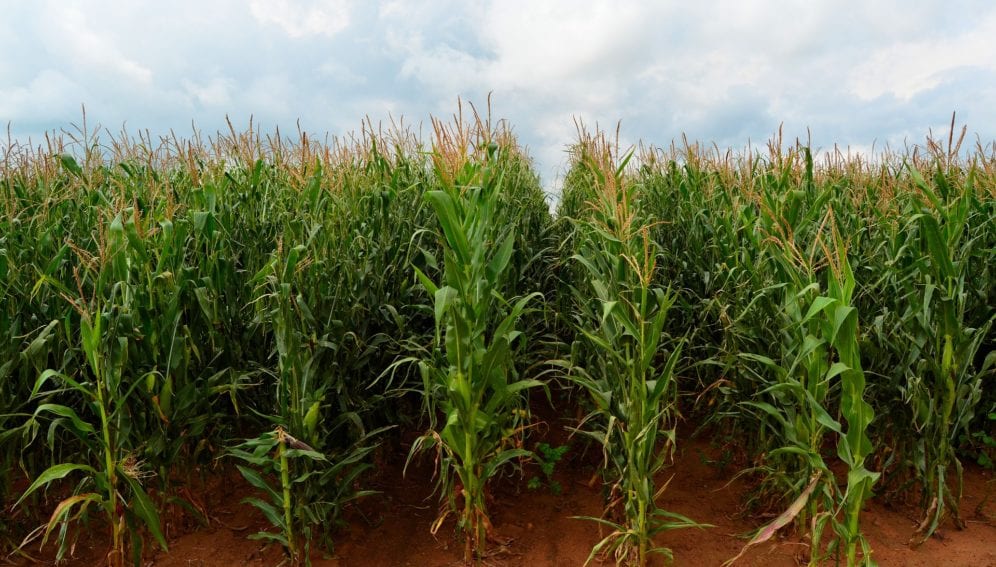
By: Alex Abutu
Send to a friend
The details you provide on this page will not be used to send unsolicited email, and will not be sold to a 3rd party. See privacy policy.
[ABUJA] African scientists say they are scaling up research on genetically modified (GM) crops such as maize and cassava to increase food security on the continent as climate change places increased stress on yields.
In October 2022, Kenya joined African nations already using genetic engineering to address agricultural productivity challenges which have been aggravated by climate change, ending more than a ten-year ban on genetically modified organisms (GMOs).
Extreme weather events such as droughts caused by climate change are already harming crop production across Africa and increasing the spread of crop pests, with increasing frequency.
“We are advocating for GMOs because … their safety is no longer in doubt, and other continents are already benefiting from its over two decades of existence,” said Canisius Kanangire, executive director of Kenya-based African Agricultural Technology Foundation (AATF), one of the organisations propagating the deployment of GM technology in Africa.
The UN Food and Agricultural Organization says that safety concerns around GM crops among the public, scientists, and regulators still exist, but the benefits outweigh the risks.
“We are advocating for GMOs because … their safety is no longer in doubt.”
Canisius Kanangire, African Agricultural Technology Foundation
Kanangire told SciDev.Net that influencing policy change and supporting Sub-Saharan Africa in creating the enabling environment needed to embrace these technologies have been their main goals.
Margaret Karembu, the chairperson of Open Forum on Agricultural Biotechnology, Kenya, said that the decision by the Kenyan government to lift the ban will allow over 17 million farmers in Kenya to import GMO commodities and enhance food security.
Biotech agriculture will create job opportunities to address the burgeoning population of unemployed youth, she added.
Some countries in Sub-Saharan Africa including Burkina Faso, Ethiopia, Ghana, Malawi, Nigeria and Sudan have allowed the planting of GMO seeds while several other countries are at different stages of development and commercialisation of a number of GM crops.
South Africa started planting GM maize in the 1990s while Ghana and Nigeria took the development further with the release of GM beans in 2022.
Genetically engineered cowpea – also known as black-eyed beans – was developed to address the crop’s vulnerability to Maruca vitarta, a pest responsible for 80 per cent destruction of the West African staple, explained Ishiyaku Mohammed, a professor of plant breeding at the Institute for Agricultural Research of Nigeria’s Ahmadu Bello University.
Varieties bred using conventional methods were unable to withstand the disease, he explained.
“Scientists at various advanced laboratories around the world screened over 15,000 accessions of cowpea but found none that can resist M. vitarta,” he explained, adding that there is a need to use technology to create cowpea varieties that are also resistant to fall armyworm and other pests.
Mohammed said that scientists have addressed one of the major challenges militating against cowpea productivity by developing a cowpea crop variety called the pod borer-resistant (PBR) cowpea, which is now immune to M. vitarta.
Jerry Nboyine, an entomologist with the Ghana-based Savanna Agricultural Research Institute (SARI), said they commenced the research to address the deadly pest’s attacks on beans in 2013 in partnership with the AATF after a series of efforts to use conventional breeding methods failed to produce results.
He told SciDev.Net: “After years of extensive research confirming its safety, the Ghanaian government has deemed it fit to introduce the PBR crop variety into the nation’s agricultural seed system, having met all regulatory stipulations and scientific procedures. The introduction will address the national cowpea demand deficit of about 100,000 tonnes per annum.
“I am happy that SARI has paved the way in making technologies that will improve the livelihood of resource-poor farmers.”
This piece was produced by SciDev.Net’s Sub-Saharan Africa English desk.




